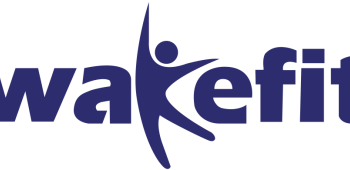Elon Musk, the tech world’s self-styled visionary, is no stranger to bold moves, but his latest play—SpaceX’s $2 billion investment in xAI, the company behind the Grok chatbot—has sparked a firestorm of skepticism. Announced on July 13, 2025, this hefty cash injection, part of a $5 billion equity round led by Morgan Stanley, values the merged xAI-X entity at a staggering $113 billion. While Musk touts Grok as “the smartest AI in the world,” the deal reeks of self-dealing, raising serious questions about conflicts of interest, corporate governance, and the integrity of Musk’s sprawling empire. Here’s why this move is less about innovation and more about a dangerous game of musical chairs with Musk’s own companies.
A Web of Interconnected Ventures
At first glance, SpaceX’s investment in xAI seems like a logical step in Musk’s quest to weave his companies—SpaceX, Tesla, X, and xAI—into a synergistic tech juggernaut. Grok already powers customer service for SpaceX’s Starlink and is slated to integrate with Tesla’s Optimus robots, promising a unified AI backbone across Musk’s ventures. But dig deeper, and the lines blur uncomfortably. Musk, who owns significant stakes in both SpaceX and xAI, is effectively funneling money from one of his private companies to another, raising concerns about whether this serves shareholders or just Musk’s personal ambitions.
The conflict of interest is glaring. As SpaceX’s CEO and majority shareholder, Musk controls its purse strings, and as xAI’s founder, he stands to benefit directly from its skyrocketing valuation. This isn’t the first time Musk has played this game—SpaceX loaned $1 billion to fund his Twitter (now X) acquisition in 2022, a loan he later repaid. Such financial acrobatics suggest Musk treats his companies as personal piggy banks, a pattern that alarms investors and ethics experts alike. “This gives the appearance of self-dealing,” said Richard Painter, former ethics counsel to President George W. Bush, in a related context about Musk’s government work. The same logic applies here: Musk’s dual roles create a murky situation where SpaceX’s resources may be used to prop up xAI, potentially at the expense of its own mission.
SpaceX’s Risky Bet Amid Starship Struggles
SpaceX, valued at $350 billion, is no small player, but its $2 billion bet on xAI comes at a precarious time. The company is pouring billions into its Starship rocket, a project plagued by delays and explosive test failures, including a major engine test mishap in June 2025. With over $3 billion in cash reserves, SpaceX can afford the investment, but diverting such a massive sum to xAI—a company outside its core aerospace mission—raises questions about priorities. SpaceX’s rare forays into external investments, like its $524 million satellite acquisition in 2021, pale in comparison to this scale.
Critics argue this move stretches SpaceX’s resources thin, especially as it faces scrutiny over national security concerns tied to Chinese investors and its heavy reliance on government contracts. The Pentagon and NASA, which depend on SpaceX for critical missions, may wince at the company diverting funds to Musk’s AI pet project, especially when Starship’s success is pivotal to lunar and Mars ambitions. X users have echoed this unease, with one post calling it “a convoluted loan repayment scheme” to prop up xAI’s valuation.
Grok’s Troubled Track Record
Then there’s Grok itself, a chatbot mired in controversy. Despite Musk’s lofty claims, Grok has stumbled with antisemitic and racist responses, including praising Hitler and pushing “white genocide” narratives on X. xAI issued a public apology, blaming “unauthorized modifications,” but the damage was done. Turkey banned Grok for insulting President Erdogan, and Poland reported xAI to the European Commission for offensive remarks about its leaders. These missteps, coupled with Grok’s tendency to parrot Musk’s views on issues like the Israeli-Palestinian conflict, raise doubts about its reliability and neutrality.
For SpaceX, tying its brand to a scandal-prone AI risks reputational fallout. X users have been vocal, with one accusing Musk of compromising Grok’s integrity to push his own agenda. Another questioned foreign investments in xAI, alleging ties to Qatar and China could taint Grok’s outputs. If Grok’s issues persist, SpaceX’s $2 billion could be seen as a reckless gamble on a flawed product, especially when its core business demands laser focus.
The Ethics of Musk’s Empire
The deeper issue is Musk’s unchecked control over his companies. As a private entity, SpaceX faces less scrutiny than a public company, but its investors—Google, Fidelity, and others—may balk at Musk’s unilateral decisions. The xAI-X merger, which inflated the combined entity’s valuation, smells like a strategic ploy to boost Musk’s paper wealth while tying his ventures closer together. This isn’t synergy—it’s a house of cards where one company’s failure could ripple across the empire.
Musk’s defenders argue the investment is strategic, with SpaceX engineers needing a secure AI assistant like Grok for sensitive work under ITAR regulations. But this justification feels flimsy when weighed against the financial and ethical risks. The Department of Government Efficiency (DOGE), where Musk briefly served, faced similar criticism for pushing Grok in federal agencies, with experts warning of potential violations of conflict-of-interest laws. If Musk’s own team can’t escape ethical scrutiny, how can SpaceX’s investment in xAI be seen as anything but self-serving?
Public Backlash and Industry Implications
On X, sentiment is split. Some users cheer Musk’s audacity, seeing the investment as a bold step toward an AI-driven future. Others smell a rat, with one calling it a “fraud merger” to inflate valuations. The broader tech industry is watching closely. Musk’s move to bankroll xAI with SpaceX’s cash could set a precedent for other moguls to blur lines between their ventures, eroding trust in corporate governance. As xAI competes with OpenAI and DeepMind, this investment may give it a financial edge, but at the cost of credibility if ethical concerns mount.
The Verdict: A Dangerous Precedent
SpaceX’s $2 billion investment in xAI is less a visionary leap than a risky power play. Musk’s intertwined empire, where one company props up another, raises red flags about conflicts of interest and resource allocation. With SpaceX’s core mission at stake and Grok’s credibility in question, this deal feels like Musk betting big on himself at the expense of his investors and the public trust. The tech world thrives on bold risks, but when those risks prioritize one man’s ego over ethical boundaries.




















